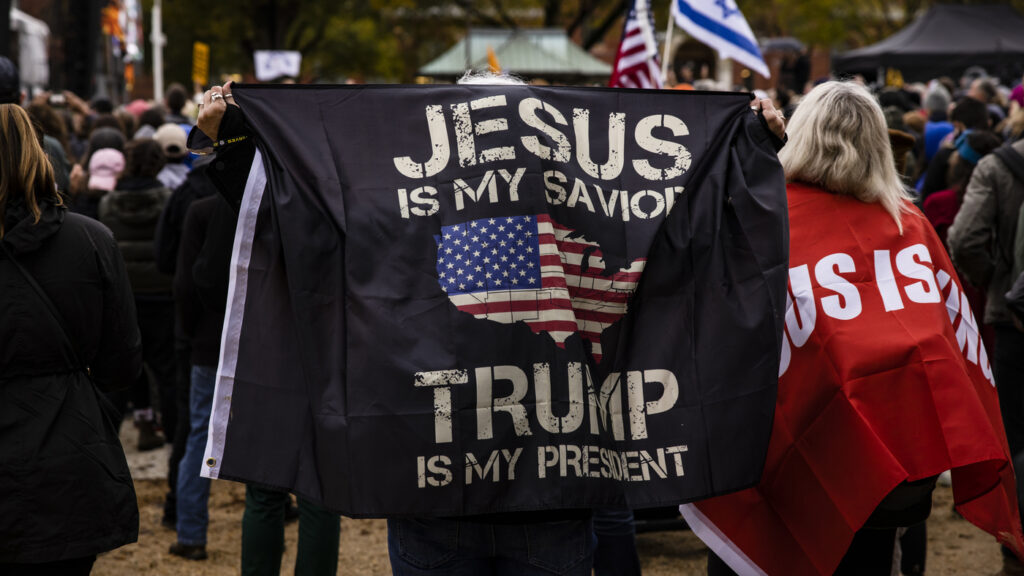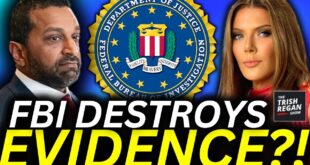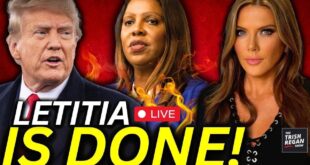

Worshippers attend a concert by evangelical musician Sean Feucht on the National Mall on Oct. 25, 2020, in Washington, D.C.
Samuel Corum/Getty Images
hide caption
toggle caption
Samuel Corum/Getty Images

Worshippers attend a concert by evangelical musician Sean Feucht on the National Mall on Oct. 25, 2020, in Washington, D.C.
Samuel Corum/Getty Images
Right-wing political correspondent Sarah McCammon grew up in Kansas City, Mo., in the 1980s and ’90s in an evangelical Christian community that taught her to fear God and never question her faith. She was “saved” at age 2, baptized at 8 and raised watching Christian movies and reading Christian books.
“The sense was just that the secular world was full of sin and was lost,” she says. “I knew very few people who were not evangelical Christians.”
Then, in high school, McCammon participated in the Senate Page Program, which meant moving away from home and living in Washington, D.C., for half a year. One day Sina, a Muslim friend and fellow page, asked her something that shook her belief: Did she believe he was going to hell because he wasn’t Christian?
According to McCammon’s faith, the answer was yes, but she couldn’t bring herself to say that to her friend. Instead, she remembers, “I just said, ‘I don’t know. I think that’s between you and God.’ And I think in that moment, when I said that, I realized something about what I actually believed.”
In the decades that followed, McCammon found herself quietly moving away from the evangelical church. But her personal and professional lives converged during the 2016 presidential campaign. As an NPR reporter covering the Republican National Convention, McCammon was struck by the support Trump garnered among white evangelicals — approximately eight in 10 of whom supported Trump in 2016, and again in 2020.
“There were all of these questions around their support for Donald Trump,” McCammon says. “How would they deal with the cognitive dissonance, the apparent conflict between everything Trump seemed to stand for and what the movement said it stood for?”

Sarah McCammon is a national political correspondent for NPR.
Kara Frame/MacMillan
hide caption
toggle caption
Kara Frame/MacMillan
Those questions came to a head for McCammon on Jan. 6, 2021, when she saw people with crosses and “Jesus saves” signs participating in the insurrection on the Capitol. “That was the moment that I really wanted and

 Latest Breaking News Online News Portal
Latest Breaking News Online News Portal





